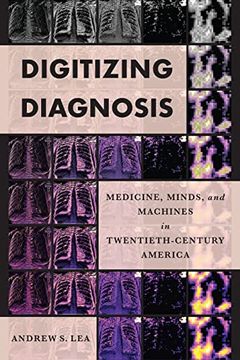Digitizing Diagnosis: Medicine, Minds, and Machines in Twentieth-Century America (Studies in Computing and Culture) (in English)
Synopsis "Digitizing Diagnosis: Medicine, Minds, and Machines in Twentieth-Century America (Studies in Computing and Culture) (in English)"
A fascinating history of the first attempts to computerize medical diagnosis.Beginning in the 1950s, interdisciplinary teams of physicians, engineers, mathematicians, and philosophers began to explore the possible application of a new digital technology to one of the most central, and vexed, tasks of medicine: diagnosis. In Digitizing Diagnosis, Andrew Lea examines these efforts--and the larger questions, debates, and transformations that emerged in their wake. While surveying the continuities spanning the analog and digital worlds of medicine, Lea uncovers how the introduction of the computer to medical diagnosis reconfigured the identities of patients, diseases, and physicians. Debates about how and whether to apply computers to the problem of diagnosis, he demonstrates, were animated by larger concerns about the nature of medical reasoning, the definitions of disease, and the authority and identity of physicians and patients.In their attempts to digitize diagnosis, these interdisciplinary groups of researchers repeatedly came up against fundamental moral and philosophical questions. How should doctors classify diseases? Could humans understand, and come to trust, the opaque decision-making processes of machines? And how might computerized systems circumvent--or calcify--bias? As medical algorithms become more deeply integrated into clinical care, researchers, clinicians, and caregivers continue to grapple with these questions today.

